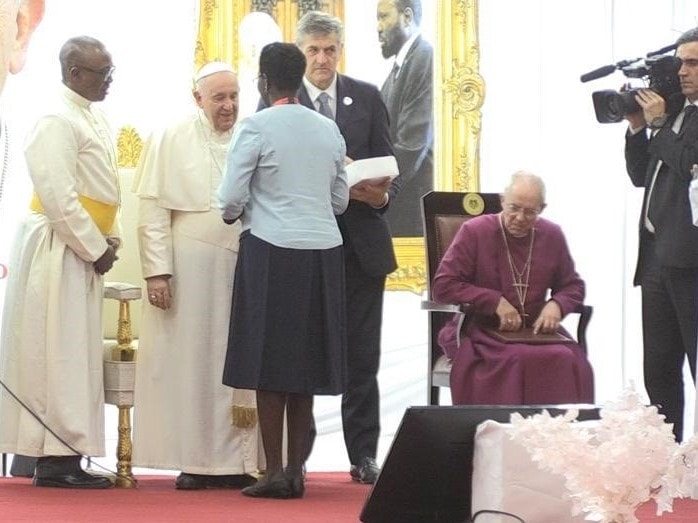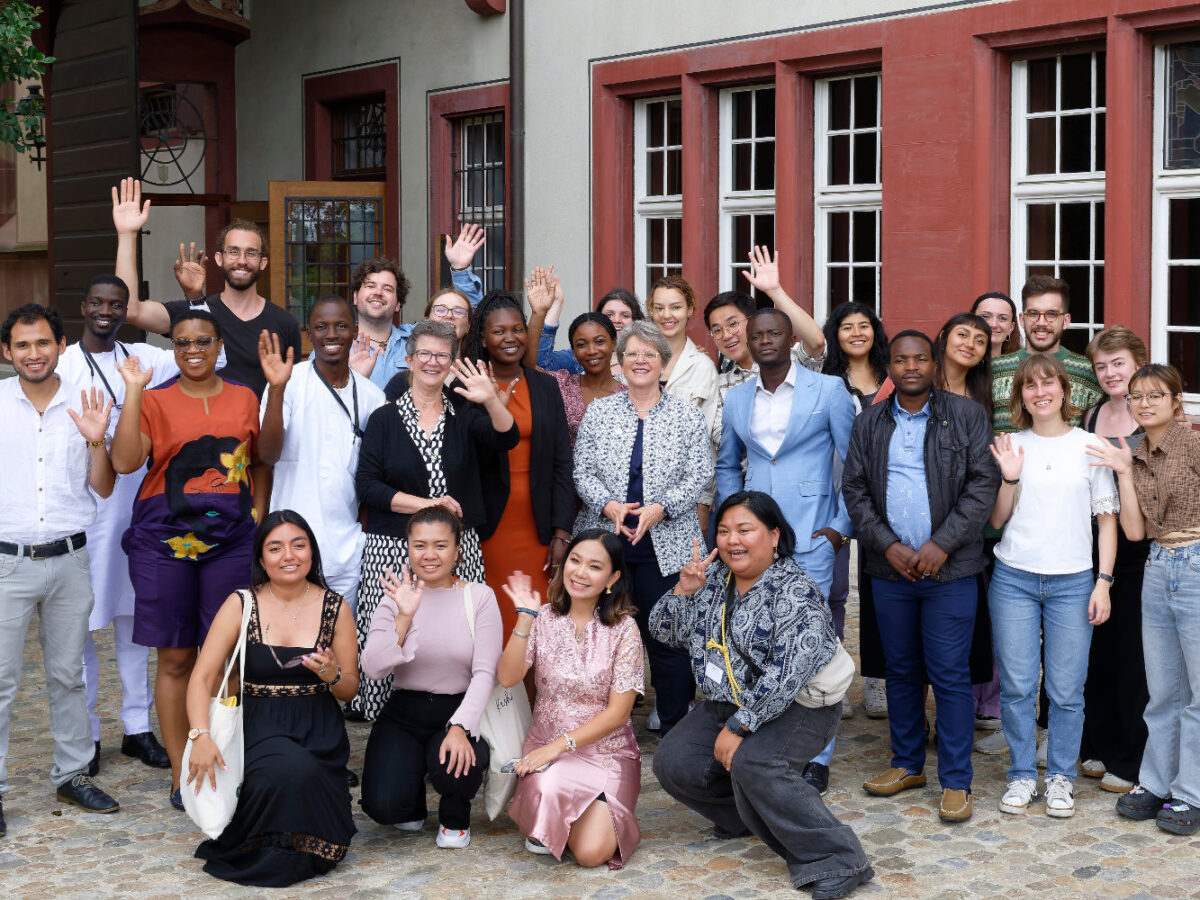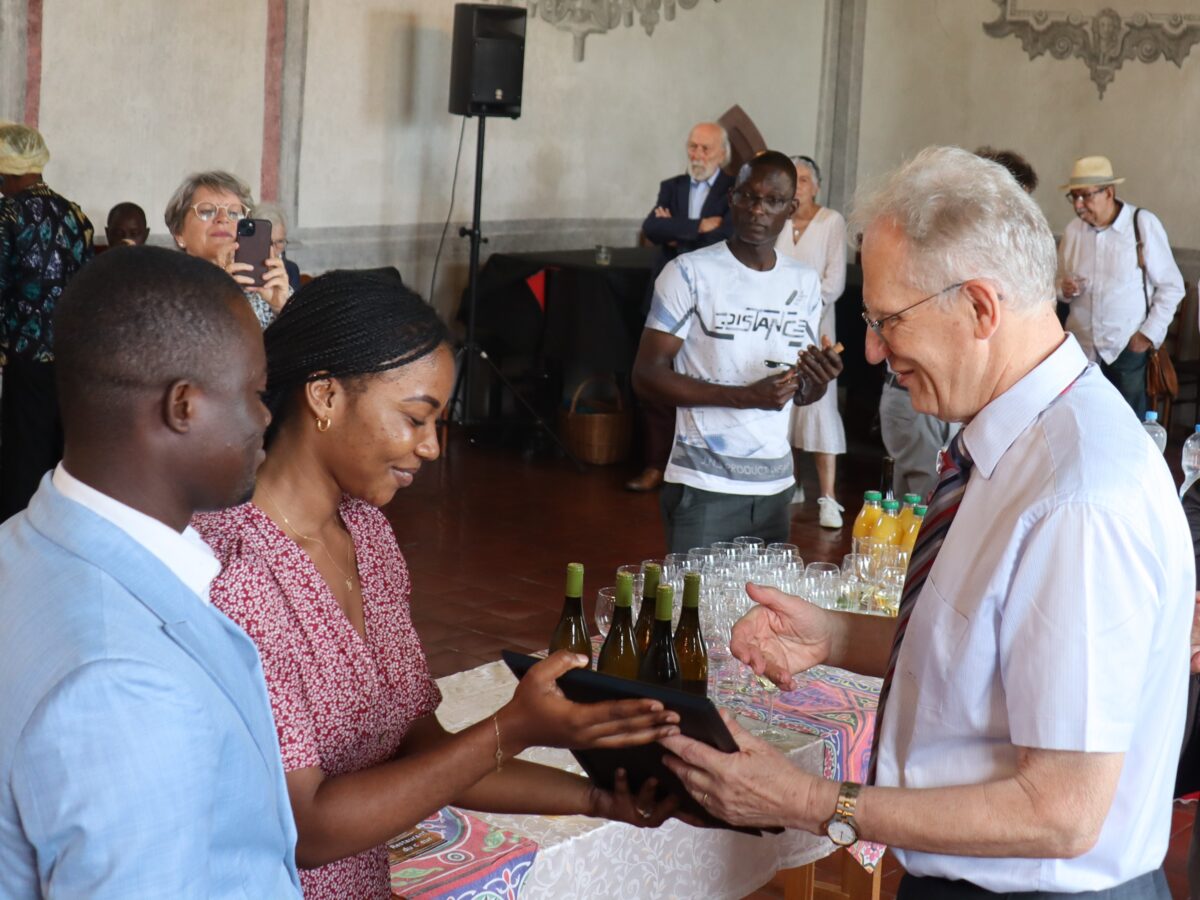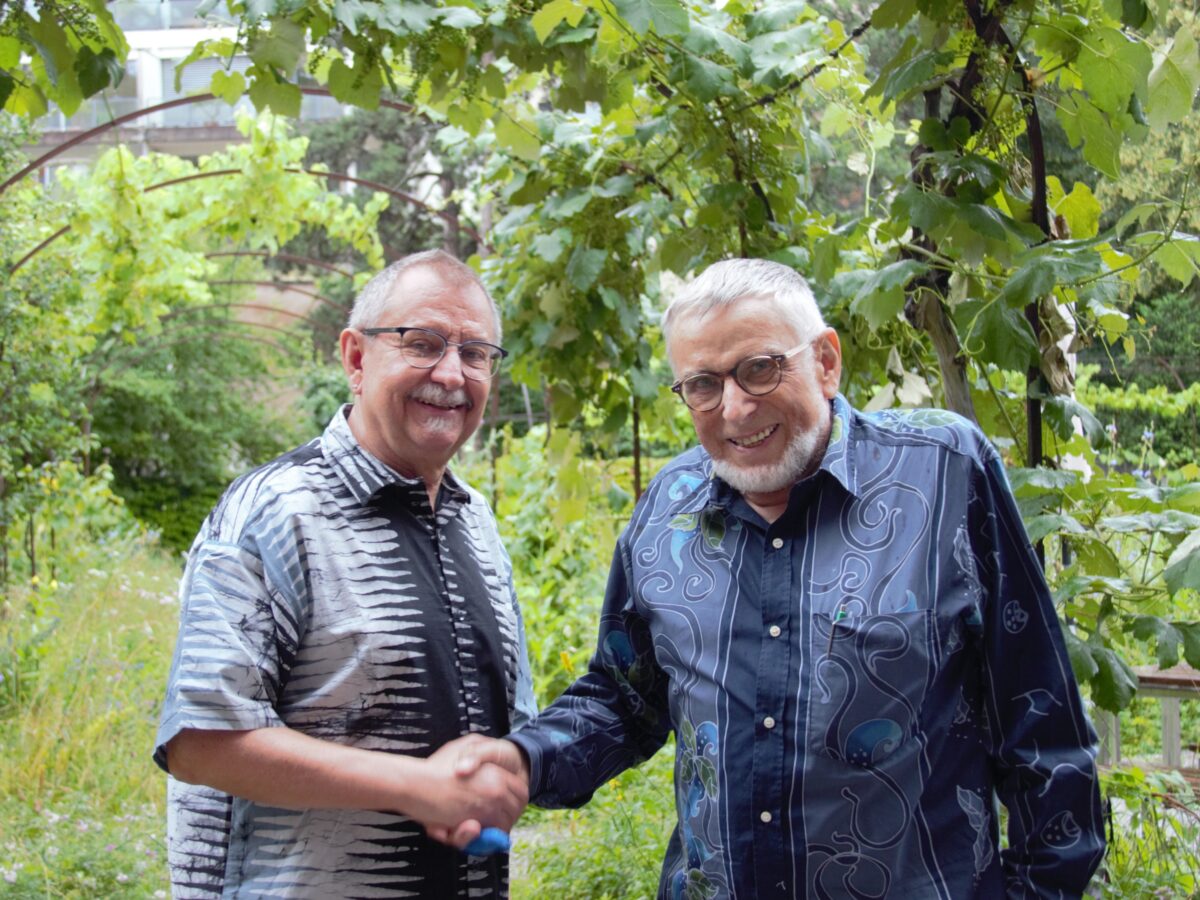Our coordinator in South Sudan had the opportunity to personally greet the Pope when he visited Juba in February. She reports on the impact of the visit in the faltering peace process.
Florence Guliba Hakim, only a few people have the opportunity to speak to the Pope. How did it come about?
As an employee of Mission 21, I am a member of a group that supports the South Sudan Federation of Churches SSCC in its work. The Vatican selected five people, the representatives of the organizations in this group. My name was among them. A great honor for me. You have such an opportunity only once in a lifetime, if at all. I was happy to be able to meet and talk to the Pope.
You were able to make a request during the greeting. What did you say to the Pope?
First, I expressed how much I appreciate the Pope's visit to South Sudan. Then I said how important it is for the Pope to talk to President Salva Kiir and Vice President Riek Machar. I myself was born and raised in war and now my children are also growing up in war. I recalled that in 2019, the two political leaders made a commitment at the Vatican to work for lasting peace in South Sudan. It is important to remind them of that. The Pope replied that this is exactly why he is here in South Sudan. And he gave me a rosary as a gift.
What can the Pope's visit actually achieve?
It is more than a signal. This was already evident on the eve of the official welcome. The president released a statement with the promise that the talks on the 2018 peace agreement will be resumed.
What does that mean in concrete terms?
A peace treaty was drawn up in 2018. But still not all parties to the conflict have signed. Talks broke down, there was a lot of mistrust from all sides. The fact that there are now efforts to re-include the previously non-signing parties is a step forward.
Does this assurance, or even the papal visit itself, have an immediate impact on the lives of the people of South Sudan?
That remains to be seen. On the same day that the president's statement was released, there was also an outbreak of violence between farmers and herders, with more than 20 dead. So the situation remains very tense. However, the day of the Pope's visit itself was certainly a day of hope. People from all parts of the country and from different denominations gathered. People who otherwise hold their services separately prayed together. Some made a dangerous ten-day journey on foot to Juba to be there. It was also important that the pope's visit brought some international attention to South Sudan. In addition, he really got in touch with the civilian population and was able to get a picture of life in South Sudan.
How did this contact come about?
Among those invited to the welcome were people displaced by the war, so-called IDPs (Internal Displaced Persons). Their stories were heard by the Pope. Among others, a twelve-year-old girl spoke of her life in the IDP camp and how she got there. It became clear that she has nowhere to belong, she has no papers. This was very moving for all present. When the Pope spoke afterwards he said that the President should make peace a priority, now and not later.
What does the Pope's visit mean for our partner organizations?
For our partners, the Pope's visit has an important meaning. It gives the South Sudan Federation of Churches a strong moral voice to advocate and work for peace and reconciliation in the country. They can take concrete actions to do so. For example, the SSCC can continue to host radio talk shows. These talks will focus on what people expect from politicians after the pope's visit, which promises were kept and which were not. The political leadership also hears this and thus learns what moves people.
Interview: Miriam Glass, Mission 21






